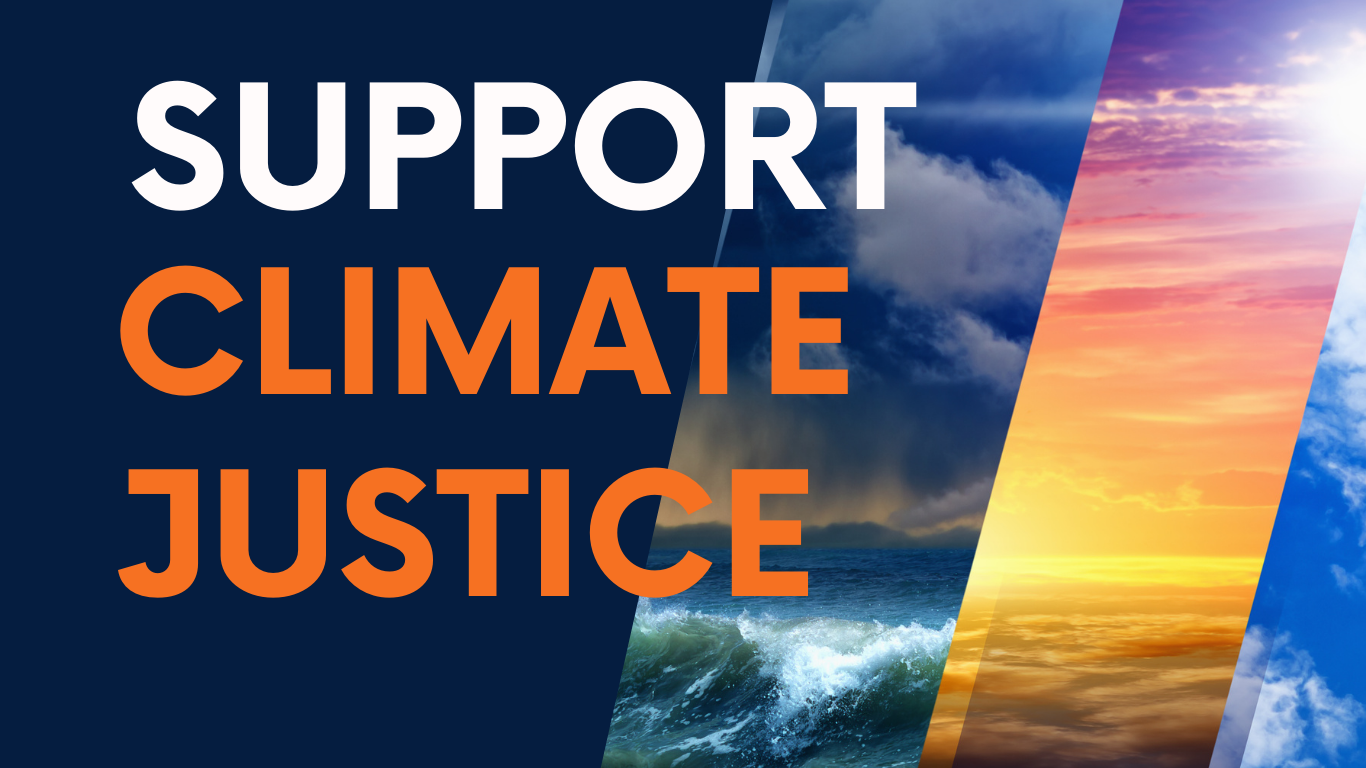By Britney Nurse
“This story is about the importance of climate journalism in the Caribbean in promoting climate justice and informing the public on the perilous effects of climate change”
As global citizens, we are fortunate to recognize the power of advocacy. Of shining a light on overlooked issues to rally people worldwide and mobilize ongoing support from those that can drive real change — governments, the private sector, philanthropists, and everyday citizens. One can also appreciate the role of the UN General Assembly and the Conference of the Parties (CoP) as a unique forum for critical dialogues regardless of geographic, economic and political differences. These serve as places where we can speak freely, though respectfully, hold each other accountable, share ideas and establish common goals and solutions. Together, we join under the same goal of the betterment of humanity.
It is in this sentiment that I, within my role as a journalist in a community like Climate Tracker, raise a grave plight affecting our planet. Caribbean islands are at the mercy of the effects of climate change. Over the last decade, our islands have been grappling with the consequences of the actions of those developed countries and the outcomes of their local policies which have immeasurable consequences that surpass borders and touch the lives of every single Trinidadian, Guyanese, Surinamese, Kittitian, Dominican and every other Caribbean islander.

Having battled Hurricane Irma in 2017 and then Hurricane Maria, two of the strongest hurricanes ever recorded in the Caribbean causing unimaginable destruction, citizens of small islands (those grossly affected by the storms) were displaced, forced to shelter in structurally unsafe buildings without roofs over their heads. For months, they were forced to depend upon foreign aid to feed our populations after crops had been decimated by floods and high winds. Our people have endured a daily struggle for survival, bearing in our hearts the hope that one day we will achieve the normalcy that was stripped away.
Our region anticipated one major storm every active Atlantic Hurricane season. However, this is no longer the case. As the world records new hottest temperatures every year, warmer oceans churn stronger hurricanes and cyclones. Yearly, we now experience stronger storms, each larger and more devastating than the last. Regions that historically only experienced one catastrophic storm every decade are now forced to grapple with devastating, record-breaking storms year after year.
From climate experts to teenage activists, people across the globe are raising their concern for the inaction of world leaders concerning the impending climate crisis. No longer can we allow their voices to go unheard. This is why it is important for there to be accurate, truthful and balanced voices reporting on the climate change phenomenon in the Caribbean.
Developed countries are being allowed to profit from the activities that worsen climate change. These countries are not immune to the effects of climate change. However, it has chosen to prioritize its economy over the well-being of the planet. If these developed countries are unwilling to sacrifice an element of their economic prosperity to protect themselves and their citizens from climate change, then why should smaller, less developed countries with vulnerable economies be forced to adapt to the crisis to which we contribute very little?
Each country should be held accountable for its role in our current climate crisis. If that cannot be achieved by reducing greenhouse gas emissions, as aimed by the Paris Agreement, then another agreement should be established. This agreement would mandate each country to contribute to a relief fund based on their contribution to greenhouse gas emissions. This fund would be used to rebuild from the devastation of natural disasters and invest in climate-resilient infrastructure for vulnerable developing countries. Nonetheless, the best way to tackle this climate crisis is for every country to play its part in attacking the problem at its very source.
Presently, Caribbean islands lack the capital and resources required to achieve the infrastructural reform needed to achieve our environmental goals. Vulnerable countries are left to ask what else can be done to coordinate the international collaboration required to fight this war against climate change? While laws do exist, they are not widely implemented or enforced.
According to Professor Michael Taylor, Dean of the Faculty of Science and Technology and Professor with specialisation in Environmental Physics, Caribbean Climate Variability, Climatology, Climate Change, who leads the Climate Studies Group at Mona, “The science could not be any clearer. The present and future threat posed by climate change is even greater than we imagined. We no longer have the luxury of delaying or deferring action. The Caribbean must act now to enable a secure tomorrow.” (UWI Campus News, 2021)
Climate reporters and journalists are often the first to respond to major weather disasters. Our role is to provide information even when we are working in the most dangerous, upsetting, and hazardous settings. And yet witnessing trauma can impact us long after the incident has ended. When it comes to disasters fuelled by climate change, we also face the prospect of covering the same kinds of disasters again and again, wearing down our sense of agency and impact.
This feeling is only exacerbated by the mere fact that our vulnerabilities are exposed annually as a result of the continuous promulgation of the developed countries emissions to reduce their GHG emissions, leaving us defenseless and in some cases, homeless or even stateless.
I asked a few journalists across the region about their experience reporting on climate justice, what they have learned, how it has improved their understanding of the climate and how to improve its coverage and the importance of solidarity and community among journalists in the Caribbean covering climate change

[Source: LinkedIn]
Dizzanne Billy, Caribbean Regional Director of Climate Tracker. (Trinidad) :
“Climate justice journalism is particularly crucial for the Caribbean region because of the unique and severe challenges it faces concerning climate change. As a highly vulnerable region, climate justice journalism helps highlight the disproportionate impact of climate change to our communities and emphasize the need for fair treatment and assistance. Climate justice journalism can also tell the stories of those forced to leave their homes, emphasising the importance of international support, fair migration policies, and the rights of climate refugees. Our region is also rich in biodiversity and indigenous knowledge. Documenting the loss of this rich biodiversity due to climate change and advocating for the preservation of these two prevalent cultural heritage and environmental resources is essential.
In summary, climate justice journalism in the Caribbean region is vital for raising awareness, promoting social equity, advocating for policy changes, and fostering resilience. By amplifying the voices of those most affected, it contributes to a global dialogue on climate change that is inclusive, fair, and focused on finding sustainable solutions for vulnerable communities.”

[Source: Instagram]
Marco Lopez, Climate Tracker Caribbean Climate Justice Fellow. (Belize):
“The Caribbean is in the direct crosshairs of the climate crisis. Government, civil society, and populations are becoming acutely aware of this threat. Traditional and new media platforms are also now making the climate connection to the various beats they cover. I honestly believe that all journalism will soon be considered “climate journalism.” It will be impossible to disconnect the climate conversation from the local news if we continue on this path of unfettered greenhouse gas emissions. Knowledge is power, and I believe climate journalism is important to not only enlighten the public but to help them prepare for the years to come.”

[Source: LinkedIn]
Johannes Damodar Patak, Caribbean Programme Officer, Climate Tracker. (Suriname):
“We have to understand that climate change is related to every topic we as journalists cover. If you like it or not. From politics to health, entertainment etc. We need to understand and understand now that Climate Change is a threat to our very existence as humans on this planet. The impacts of this are especially seen in the Caribbean, floodings, heat waves, scarcity of drinking water, storms etc. The impacts of climate change make vulnerable communities, which are often not being heard. It is our job and responsibility as journalists to give them that voice”
[Source: LinkedIn]
David Papannah, Former Climate Justice Journalist Fellow, Climate Tracker (Guyana):
“I believe climate journalism is important because it sheds light on issues that require solutions. From a grassroot level in developing countries it illustrates how we as humans are impacted by the changes in our environment. Through Journalism we are able to tell these stories and trigger action by our leaders. The coverage of climate issues also advances the cause which can ultimately lead to bilateral discussions and agreements to bring solutions to pressing issues.”
Climate journalists fulfil one of the most crucial roles in civil society: informing the public about how warming temperatures influence their daily lives and threaten their safety. A global issue transcending one single beat, coverage of the climate crisis can incorporate a variety of topics. Many environmental stories are collaborations. It is very clear that climate change is the most important cross-border topic that we can all work on together
In the Caribbean, we are very vulnerable to current climate and weather extremes and are even more so to the potential impacts of climate change and sea level rise. We must therefore take steps to adapt to the changes. We can also commit to a less carbon-intensive path for future development through the use of renewable energy and the implementation of energy-efficient measures. We must also promote the use of best practices and educate ourselves about the threats and remedial actions that can be taken. This does not change the fact that those responsible for causing global warming and pushing beyond the earth’s limitations should go unpunished. Climate journalism is the key to pushing the envelope in highlighting the ‘injustices’ of this phenomenon.
This story is published with the support of the Caribbean Climate Justice Journalism Fellowship, which is a joint venture between Climate Tracker and Open Society Foundations.







